Legality of UK surveillance laws to be tested by European court

Laws surrounding online surveillance will always prove controversial, and this is certainly true of the UK's proposed Investigatory Powers Bill -- aka the Snooper's Charter. Currently in draft form, the final content and scope of the bill could be set today as the European Court of Justice rules on a challenge brought against the existing Data Retention and Investigatory Powers Act 2014 (Dripa).
The case has the support of many European states, and the outcome of the case will determine the powers of data collection the UK government is able to exercise. It is expected that the case could be one of the deciding factors in the in-out referendum in June when the UK votes on whether to remain part of Europe or to go it alone.
Immigration officials allowed to hack phones of refugees and asylum seekers

The British government secretly rolled out powers that permitted the immigration officials to hack the mobile phones of asylum seekers and refugees, the Observer reveals. The Home Office has confirmed the hacking powers which have sparked outrage from privacy and human rights groups.
Since 2013, immigration officials have not only been permitted to hack into migrants' phones and computers, but also to install surveillance equipment in homes and detention centers. With concern about governmental plans for the snooper's charter and the privacy invasion this entails, claims that the powers are needed to "deal effectively with all immigration crime" are likely to fall on deaf ears.
Egypt bans Facebook Free Basics for NOT spying on users

In another blow for Mark Zuckerberg's free internet service, Facebook Free Basics has been banned in Egypt. The Egyptian government made the decision after Facebook refused to allow it to use the service to spy on users.
The shutdown comes just five months after Facebook Free Basics launched in Egypt, having proved controversial in other countries for contravening net neutrality rules. But Facebook's refusal to permit government surveillance of users means that the service has been banned this time for political reasons.
How UK tech companies could comply with Snoopers Charter
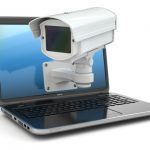
It would be hugely ironic if the UK government’s plans to help it seize back control of the digital age actually pushed technology firms even further down the path of encryption.
The second version of the Investigatory Powers Bill -- or Snoopers Charter, as it has been colloquially dubbed -- was published by the Home Office on March 1. This came in light of criticism of the first version -- published in December -- from three parliamentary joint committees: the Science and Technology Committee, the Intelligence and Security Committee, and the Joint Committee for the bill itself -- which made some 86 recommendations alone.
China praises hacker who tried to steal US military secrets

Tensions could be set to mount between the US and China after the Communist government's Global Times newspaper praised Su Bin, the Chinese "government soldier" who pled guilty to trying to steal military secrets from US defense contractors.
Despite the Chinese government having previously said that it does not support cybercrime or online espionage, the state newspaper used an editorial to say "Su Bin deserves respect whether guilty or innocent". The hack was designed to gather data about, amongst other things, the F-22 and F-35 fighter jets and C-17 military transport aircraft.
Snowden: I couldn’t trust Microsoft so I used free software like Tor, Tails and Debian
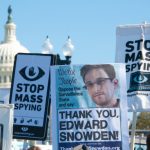
At the Free Software Foundation's LibrePlanet 2016 conference, Edward Snowden credited free software with enabling him to blow the whistle about government surveillance. Speaking via video link from Russia, the former NSA contractor said that "what happened in 2013 couldn't have happened without free software".
But as well as indicating his preference for free, open source software, Snowden revealed that he refused to use Microsoft software because he "couldn't be sure" that there weren't backdoors built in.
Chelsea Manning: Insider Threat document shows US government employees are under surveillance
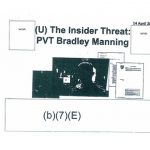
The US government is busy putting thousands of its own employees under 'permanent surveillance' according to a document obtained by Chelsea Manning. In the wake of leaks by the likes of Edward Snowden and WikiLeaks, the government set up the Insider Threat program in an attempt to nip future leaks in the bud.
It's a while since Manning was in the news, the last notable appearance being when the solider formerly known as Bradley Manning joined Twitter from prison. But the latest document released by Manning -- obtained using a freedom of information request -- shows that the government is not afraid to use NSA-style tactics on its own employees.
Cooperating with the good guys: Is NSA snooping really that bad?

Ever since Edward Snowden, a former US National Security Agency (NSA) contractor, leaked information about the internet spying activities conducted by the NSA, there has been an unrest among Americans. The main concern for most people is that their privacy has been intruded without their permission.
Many Americans are also worried about the things that the NSA and the US administration could do with access to such "private" data. And the revelation about several tech giants, including Yahoo and Google, being involved has probably made people even more circumspect about using online services based in the US.
Majority of IT pros support Apple in legal fight with FBI

Encryption is a must-have in today’s digital communications, IT pros agree, adding that what the government is (trying to) achieve with surveillance could mean the death of privacy altogether.
Those are the results of a new survey conducted by security firm AlienVault. It surveyed the attitudes of more than 1,500 IT (including security) professionals about today’s privacy, and came up with interesting results -- 34 percent believe the government should be able to eavesdrop on communications for the purposes of national security.
Fighting censorship: Edward Snowden, Amnesty International, AdBlock and Pussy Riot

Online advertising is incredibly divisive, and for World Day Against Cyber Censorship, AdBlock is opting to replace banner ads that would normally be blocked with links to Amnesty International. The human rights group is fronting an anti-cyber-censorship campaign, joined by Edward Snowden, Pussy Riot (famous for rubbing up Russia's President Putin the wrong way) and Ai Weiwei.
The aim of the campaign is to promote freedom of speech online but highlighting examples of free speech being censored -- not just in obvious places like China and North Korea, but also the United States and the United Kingdom. Government control of the internet is something that many think is restricted to limiting what journalists are able to publish online, but as the campaign highlights it's a problem that can affect anyone.
Apple says FBI case is the start of a slippery slope to mass surveillance via iPhone
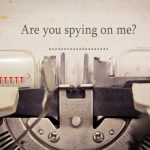
The battle between the FBI and Apple over access to the San Bernardino shooter's iPhone is turning into little more than a battle of wills. Both sides are using the case to make a point; Apple posits that unlocking the phone would set a dangerous precedent, the FBI says not unlocking the phone amounts to aiding terrorists.
There have been heavy words thrown from both sides, and the latest round of blows sees Apple claiming that the FBI could follow up its phone unlocking demand with a demand to switch on iPhone cameras and microphone for the purposes of spying on users. "Where will this stop?" asks Eddy Cue. "Some day, someone will be able to turn on a phone's microphone. That should not happen in this country".
FBI makes clandestine changes to rules governing access to NSA data

A secret court accepted changes to the rules governing the FBI's access to NSA data about US citizen's international emails and phone activity. The Guardian received confirmation from US officials that the classified changes were made to Section 702 of the Foreign Intelligence Surveillance Act (Fisa).
The Privacy and Civil Liberties Oversight Group (PCLOB) has previously revealed that the FBI was able to search through NSA's collection of trawled data about international communication. The classified nature of the latest changes mean it is impossible to know exactly what they entail, but they are described as being a step towards "enhancing privacy".
GCHQ: US and UK tech firms need to work together to solve encryption challenges

The head of GCHQ, Robert Hannigan, has called for greater co-operation between tech companies and governments. Speaking at the Massachusetts Institute of Technology, Hannigan referred to the "highly charged atmosphere" surrounding the encryption debate in a barely-concealed reference to the on-going battle between Apple and the FBI.
He said that in the coming months Prime Minister David Cameron will set out plans to improve the relationship between tech companies and intelligence agencies. He was at pains to stress that the controversial snooper's charter (or Investigatory Powers Bill) would not be used as an excuse to allow governmental spying or to introduce a ban on end-to-end encryption.
Big Brother's crystal ball: China developing software to monitor citizens and predict terrorist activity

We've become used to the idea of online surveillance thanks to Edward Snowden blowing the lid off the activities of the NSA and GCHQ. While it's easy and natural to bemoan the infringement of privacy such surveillance entails, no one ensures as limited and controlled an internet as the Chinese.
There's the famous Great Firewall of China for starters, and as part of a counter-terrorism program the country also passed a law requiring tech companies to provide access to encryption keys. Now the Communist Party has ordered one of its defense contractors to develop software that uses big data to predict terrorist activity.
Updated Snooper's charter will allow police to remotely hack phones and computers
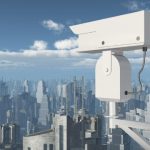
The UK's controversial Snooper's charter (or draft Investigatory Powers Bill) has been updated to grant the police sweeping new powers. The new legislation will permit authorities to not only access the browsing histories of suspected criminals, but also to remotely hack into computers and phones in certain circumstances.
Previous version of the bill had limited such powers to the investigation of "serious crime", but the updated version expands this dramatically. Home Secretary Theresa May is hoping to push the draft Investigatory Powers Bill through parliament later this year. The bill has already met with strong criticism from not only privacy groups, but also governmental advisers. While there are some concessions to protect unbreakable encryption, the latest changes will do little to assuage concerns with the bill.
Recent Headlines
Most Commented Stories
BetaNews, your source for breaking tech news, reviews, and in-depth reporting since 1998.
Regional iGaming Content
© 1998-2025 BetaNews, Inc. All Rights Reserved. About Us - Privacy Policy - Cookie Policy - Sitemap.